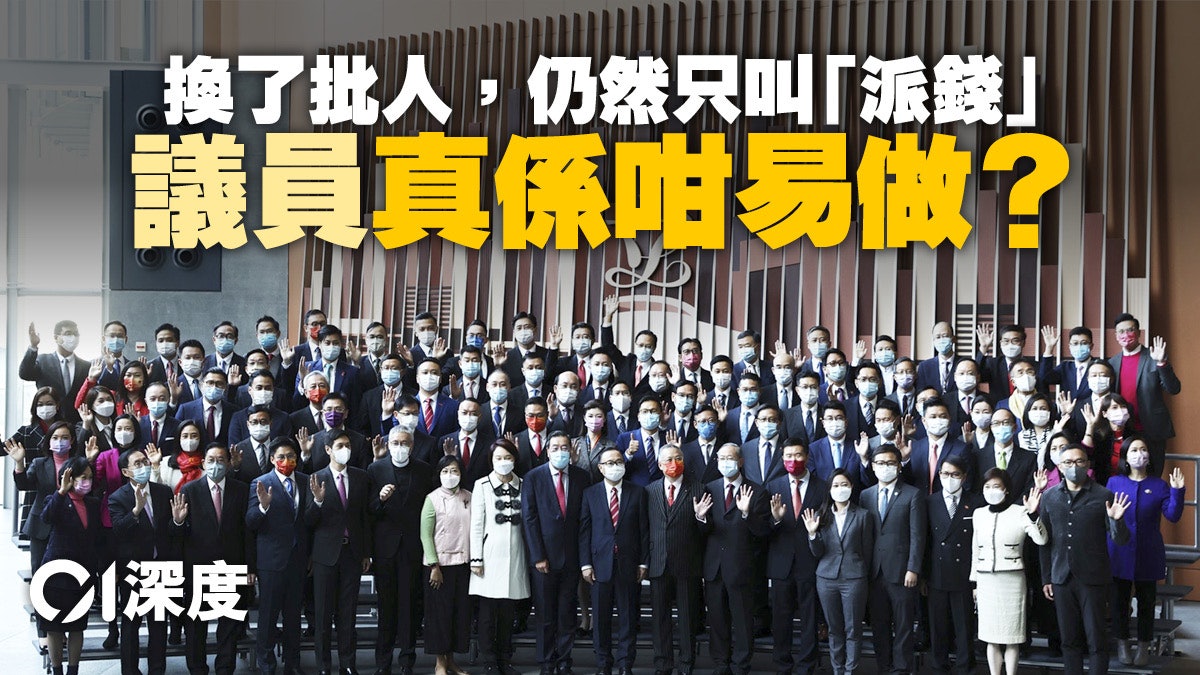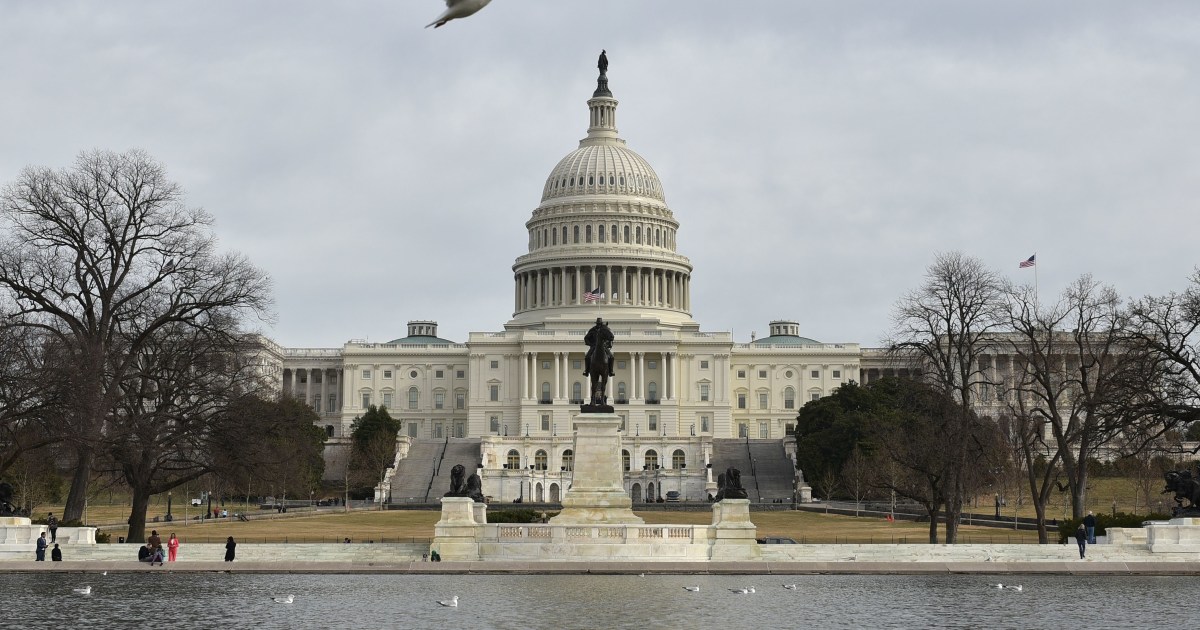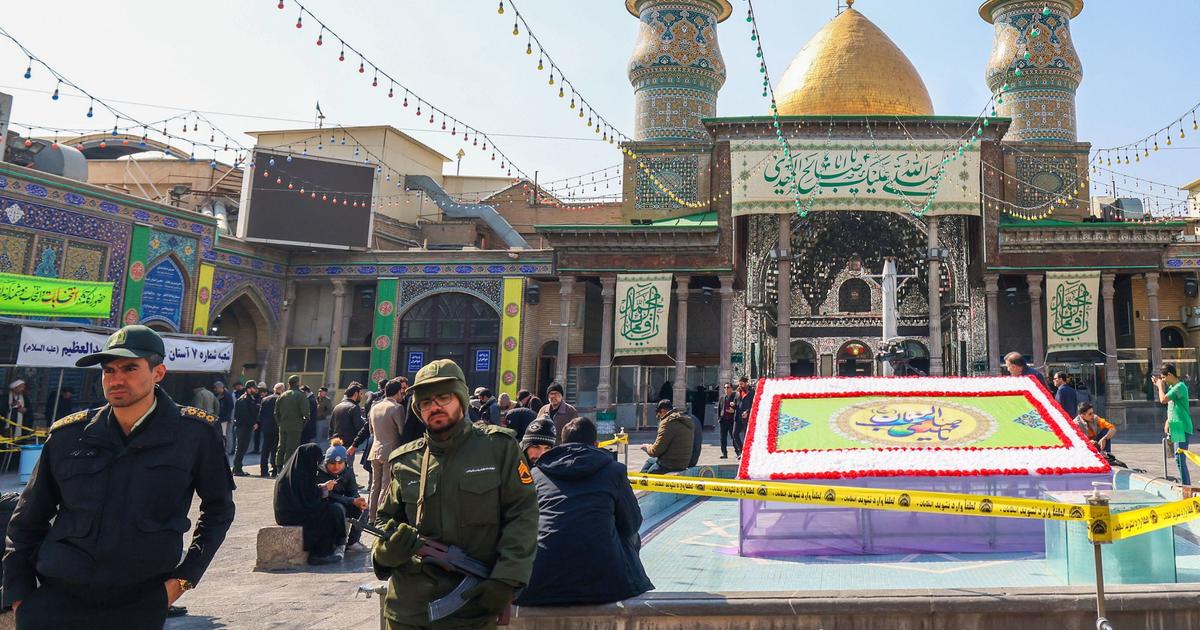The Financial Secretary, Paul Chan, will deliver the last Budget of the current government tomorrow (February 23).
Under the severe epidemic situation, dine-in restaurants were banned in the evening market, and many premises were closed, which greatly affected the market and roads. The society naturally expects the authorities to "distribute money to the whole people" again.
However, from the perspective of long-term public finance and economic development, the “universal distribution of money” that is evenly distributed between the rich and the poor will only exacerbate social inequality. Qian's Hong Kong elite - According to the statistics of "Hong Kong 01", at least 53 members of the new Legislative Council have expressed their support for the distribution of money.
The outside world is also widely expected that Chen Maobo, who is rumored to be interested in running for the new chief executive, may be "according to public opinion" for the third time because of his popularity.
It is widely expected that the Financial Secretary Chen Maobo, who intends to run for the election of the new chief executive, will distribute money for the third time "in accordance with public opinion" in order to boost the popularity of Gu.
(Photo from Chen Maobo's blog)
The loudest as always
Looking at the proposals of various political parties and members of the Legislative Council recently, the practice of "giving money to the whole people" in the form of consumer coupons is the most popular, and it is generally believed that it will help relieve people's hardships and stimulate the economy.
According to the statistics of "Hong Kong 01" (see the table below), as of last Thursday (February 17), at least 40 members of the Democratic Alliance for Betterment of Hong Kong, the Federation of Trade Unions, the People's Democratic Alliance, the Liberal Party, and the AFL have expressed their views on requesting the government to distribute Consumer coupons ranging from 5,000 yuan to 10,000 yuan; another 13 "Dan Ding" members, including newcomers Yan Gang, Chen Zuheng, Yang Yongjie, Liang Wenguang, Lin Suwei and Zhang Xinyu, etc. support the distribution of cash, with the same amount of 5,000 yuan and 10,000 yuan. Mainly; there are only 7 people in the opposition. For example, the New Democracy Party questioned the limited effect of sending money to boost the economy, and believed that resources should be focused on helping the grassroots citizens or the small and middle class, while the election committee members Liu Zhipeng and Lin Xiaolu pointed out that measures may not be necessary. To achieve "targeted poverty alleviation".
However, the highest voice does not mean it is the best choice for Hong Kong.
(Drawing of "Hong Kong 01")
Good times and bad times give money
The increasingly severe epidemic situation and the tightening of epidemic prevention have both hit people's livelihood and economic performance, and the catering, retail and service industries are bearing the brunt. It can not only solve the urgent needs of the public, but also boost the economy by increasing consumer spending.
When Chen Maobo responded to Chen Manqi's question about consumer coupons in the Legislative Council last month, he declared that the society as a whole "reacted very positively to the electronic consumer coupons distributed last year, believing that it will help stimulate consumption sentiment and boost the economy", and he will be cautious and Consider whether to distribute again.
At the same time, despite the sixth round of the Anti-epidemic Fund passed by the Finance Committee of the Legislative Council recently (February 15), the government agreed to provide a one-time temporary unemployment support of 10,000 yuan to the short-term unemployed, and additional funds to restaurants, beauty salons, Massage parlors, fitness centers, cinemas, hair salons and other premises provide a one-off subsidy; but due to loopholes in this measure, for example, some freelance workers or employees without MPF may not be able to benefit. fill the gap.
In addition, there is an "old-fashioned" rationale that the government can use money to quell social grievances caused by the outbreak of the epidemic. It also points out that the authorities have established a database on the distribution of consumer coupons. I believe it would be more convenient to implement it again.
exacerbate social inequality
From this point of view, the "universal distribution of money" is like a panacea under the epidemic. It is not only beneficial to the economy, relieves people's hardships, but also helps to restore public opinion. Why not do it?
However, if you look beyond the short-sighted and populist perspective, and analyze the pros and cons of "all-people distribution of money" from the perspective of long-term public finance and economic development, you will come to different conclusions.
It is undeniable that "distributing money" can indeed help the citizens in difficult times and solve their urgent needs. Especially under the epidemic, the livelihood of grassroots citizens has been greatly affected.
However, under the economic downturn, this one-time distribution of money with equal income between the rich and the poor not only fails to achieve "targeted poverty alleviation", but also exacerbates social inequality; The model will not help at all to improve the problem of structural poverty, let alone effectively promote the government's long-term reform of the economy.
The disparity between the rich and the poor in Hong Kong is severe, and the epidemic will undoubtedly exacerbate social inequality, because the middle and rich classes have sufficient resources to deal with it, and their lives and livelihoods are less affected by the epidemic. ”, and face a higher risk of infection due to the lack of epidemic prevention resources and the nature of work.
For example, according to the "Inequality Virus" report released by Oxfam early last year, the new crown virus epidemic has worsened economic inequality in almost all countries and regions, and for the wealthy, they have a higher economic resistance to the epidemic. Ability, when some grassroots need to stay at home due to the epidemic and cannot start work, the economic recession of the rich has already ended.
Therefore, just as the voices of the opposition parties such as the New Democracy Party, Liu Zhipeng and Lin Xiaolu said, the government needs "targeted poverty alleviation" and more concentrated resources to help grassroots citizens who have been hit hard by the epidemic, instead of "greeting for convenience" and "distributing money to the whole people" regardless of the rich and the poor. ".
Such one-off measures seem to be generous, but in fact, because the rich are in a better position than the poor, in disguise, the rich get richer and the poor get poorer, further exacerbating social inequality.
For freelancers who have not benefited from the sixth round of the Anti-epidemic Fund, MPs can suggest that the government formulate targeted relief measures.
The problem of social inequality in Hong Kong is serious. Some reports indicate that under the epidemic, inequality tends to expand.
The poor have a greater chance of contracting the virus.
(file picture)
The Budget should be "both long and short"
As for the so-called "boosting the economy", although it is not entirely wrong, the overall effect is limited.
First of all, the biggest shortcoming of the last round of electronic consumer coupons is that it could not more accurately support the hardest-hit small and medium-sized merchants and the tourism industry. Therefore, even if the total retail sales value of the first four months after the consumer coupons were distributed last year, the value of the total retail sales is year-on-year An increase of 9.6%, but many small shops and travel agencies are still forced to close their business. Secondly, the epidemic has been repeated for more than two years. The government has spent more than 220 billion yuan to launch six rounds of anti-epidemic funds, and it is difficult to predict when it will recover in the future. An additional tens of billions of yuan are spent to distribute money on the grounds of boosting the economy. I am afraid that the existing fiscal reserves of more than 800 billion yuan may not be distributed for long.
"Hong Kong 01" has long ago pointed out that the "Budget" should be "both long and short", to help people in need in the short term, and in the long run, it is necessary to propose policies to resolve the deep-seated conflicts in Hong Kong, including increasing employment and helping traditional industries survive the epidemic. transition and strengthen social security, so that all strata can enjoy the fruits of social and economic development, and prevent any party from becoming a victim or stepping stone to the success of the rest of the strata—for example, in a distribution (that is, according to the principle of market efficiency), enterprises Provide reasonable wages for employees, and in the secondary distribution, adjust housing, medical care, education, transportation and other public services through policy intervention to ensure the quality of life of different classes.
In the past, either because the parliament was overly "politicized", or because some pan-democratic lawmakers held a "futility" attitude toward the government, they suggested "returning wealth to the people."
But today, these voices are no longer seen in parliament, in exchange for a group of politicians who should be rational and have professional backgrounds.
But why is it that at the critical moment of the epidemic, some legislators still only know how to ask the government to send money, and only a few legislators point to "targeted poverty alleviation".
In the end, what is the difference between this and the parliament in the past?
If the government and parliamentarians still take it for granted with the "subsidyism" of "little favors" to quell public grievances, but never have the determination and courage to fundamentally solve the current situation of injustice in the distribution structure, the so-called good governance and good governance will only become a slogan.








